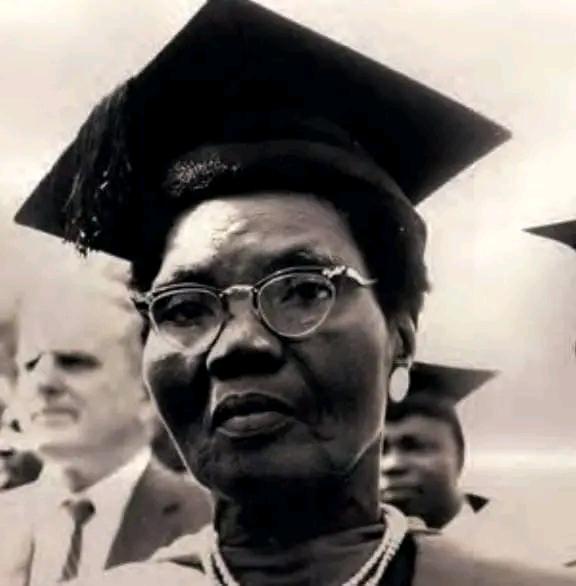Student Village Academy › Forums › HISTORY › African History › Funmilayo Ransome Kuti
- This topic has 0 replies, 1 voice, and was last updated 1 year, 7 months ago by
 Jimoh Eyitayo.
Jimoh Eyitayo.
-
AuthorPosts
-
-
July 11, 2024 at 11:26 AM #69911
 Jimoh EyitayoParticipant
Jimoh EyitayoParticipantChief Olufunmilayo Ransome Kuti born Frances Abigail Olufunmilayo Olufela Folorunso Thomas 25 October 1900 also known as Funmilayo Aníkúlápó-Kuti, was a suffragist,women’s rights activists, political campaigners,and Nigerian educator.

Fumilayo Ransome Kuti was born in Abeokuta in what is now in Ogun State, and was the first female student to attend the Abeokuta Grammar School. As a young adult, she worked as a teacher, organizing some of the first preschool classes in the country and arranging literacy classes for lower-income women.
During the 1940s, Ransome-Kuti established the Abeokuta Women’s Union and advocated for women’s rights, demanding better representation of women in local governing bodies and an end to unfair taxes on market women. Described as the “Lioness of Lisabi” she led marches and protests up to 10,000 women, forcing the ruling Alake of egba land to step down in 1949.
As Ransome-Kuti’s political influence grew, she took part in the Nigerian independence movement, attending conferences and joining overseas delegations to discuss proposed national constitutions. Spearheading the creation of the Nigerian Women’s Union and the Federation of Nigerian Women’s Societies, she advocated for Nigerian women’s right to vote and became a noted member of international peace and women’s rights movements.
Ransome-Kuti received the Lenin Peace Prize and was awarded membership in the Order of the Niger for her work.
In the later years of Funmilayo Kuti’s life, her son Fela, a musician and activist, became known for his vocal criticisms of Nigerian military governments. Fela had been arrested and briefly imprisoned during the early 1970s, and authorities had raided his home and properties several times. To show his disdain for the Federation of Nigeria’s authority, he named his home property “the Kalakuta Republic”and transformed it into a commune where friends and supporters could gather and spend time without fear of the military authorities In November 1974, Nigerian police raided his nightclub in town with axes and tear gas, leaving Fela with injuries.
Funmilayo Kuti often visited her son at his compound, and she was there on 18 February 1977 when close to 1,000 armed soldiers surrounded and stormed the property.As soon as the soldiers broke inside they began destroying property and assaulting the residents. Fela and Bekolari were beaten and severely injured. Funmilayo Kuti was thrown from a second-floor window. she was hospitalized and eventually lapsed into a coma. She died on 13 April 1978 as a result of her injuries.
Funmilayo Ransome-Kuti’s remains were interred in Abeokuta in the same vault as her husband. Her funeral services were attended by thousands, and many market women and traders shut down shops and markets across the city to mark her death. Major Nigerian news outlets published eulogies, naming the activist “a progressive revolutionary” and “a Pan-African visionary”
-
-
AuthorPosts
- You must be logged in to reply to this topic.

